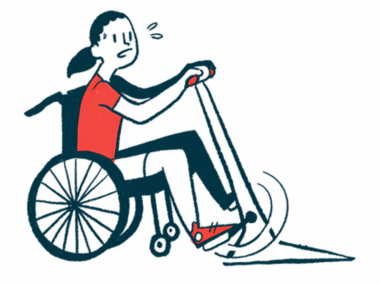Ponvory Recommended for Approval in EU for Relapsing Forms of MS
Written by |

A branch of the European Medicines Agency has recommended that Ponvory (ponesimod) be approved to treat relapsing forms of multiple sclerosis (MS) in adults with active disease.
This positive opinion from agency’s Committee for Medicinal Products for Human Use (CHMP) covers clinically isolated syndrome, relapsing-remitting MS (RRMS), and active secondary progressive MS (SPMS).
The European Commission, which generally follows the committee’s opinions, will now review the application and make a final decision. The treatment was recently approved for a similar indication in the U.S.
“The positive CHMP opinion for ponesimod is testament to nearly a decade of cumulative clinical research which ultimately showed the treatment offers [relapsing MS] patients superior efficacy … compared to an established therapy, as well as a proven safety profile,” Bill Martin, PhD, the global therapeutic area head at Janssen Research and Development, said in a press release.
Ponvory, developed by Janssen, stops immune cells called lymphocytes from reaching the brain and spinal cord, where they can degrade the protective myelin sheaths that insulate nerve fibers and contribute to the course of MS.
The medication does this by blocking signaling from the sphingosine-1-phosphate receptor 1 (S1P1), which would otherwise enable lymphocytes to leave the lymph nodes, where they are made and stored.
CHMP’s recommendation was based on results from the OPTIMUM Phase 3 trial (NCT02425644), which compared the safety and efficacy of Ponvory to those of Aubagio (teriflunomide), an approved first-line MS therapy that also dampens the immune system but through a distinct mechanism.
OPTIMUM included 1,133 adults with RRMS or active SPMS, ages 18–55, who were randomly assigned to receive either oral Ponvory (20 mg) or Aubagio (14 mg) daily for approximately two years.
Top-line results from that study showed that Ponvory significantly reduced the number of relapses per year by 30.5% compared to Aubagio, increased the proportion of patients without relapses in the two-year study, and reduced the number of new inflammatory brain lesions by 56%, as seen on magnetic resonance imaging scans.
Both medications showed similar rates of adverse side effects. Most were classified as mild or moderate and did not cause participants to discontinue treatment. Adverse events that were more common with Ponvory than Aubagio included elevated liver enzymes, an indicator of liver damage, and common cold.
“Relapsing forms of multiple sclerosis (MS) have varied and often unpredictable symptoms, posing a unique human, societal and economic burden,” said Catherine Taylor, MD, a vice president at Johnson & Johnson Middle East.
“Despite continuous innovations in the treatment landscape, unmet needs remain,” she added. “If approved by the European Commission, ponesimod has the potential to help more people living with relapsing forms of MS.”





